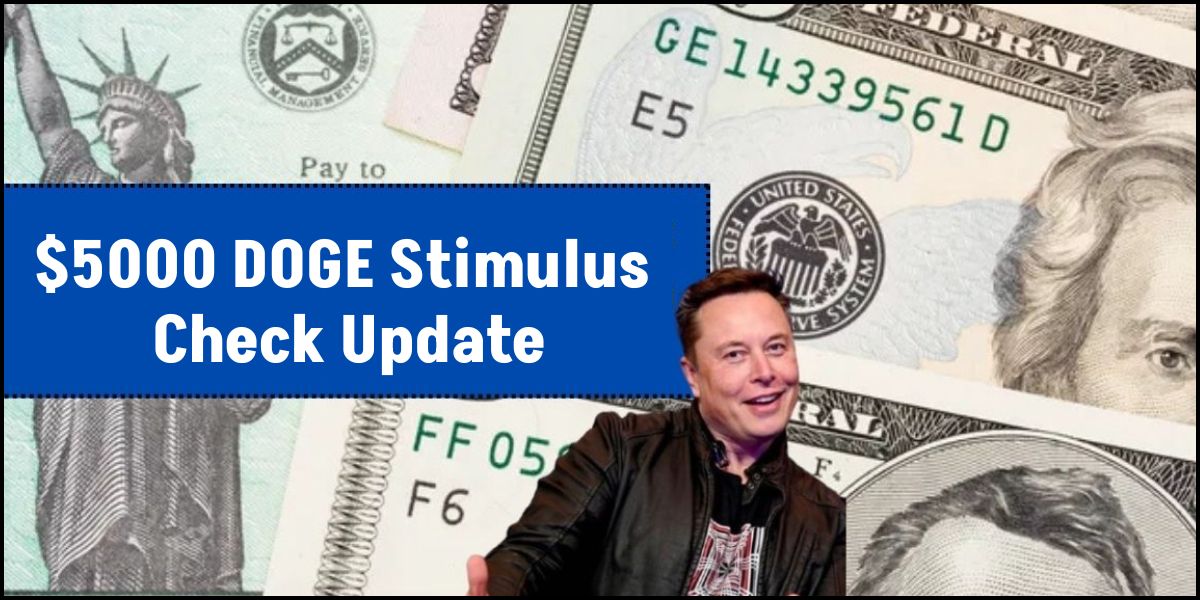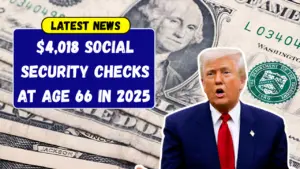$5000 DOGE Stimulus Check Update: Sure! Here’s a fully rephrased, human-written, and well-structured version of your article with the same length and information, optimized for readability and clarity.
There’s been growing buzz around a potential $5,000 “DOGE dividend” stimulus payment for taxpayers. If you’re wondering whether you’re eligible or how much you could actually receive, here’s a simple breakdown of everything we know so far.
Let’s walk through what this proposed DOGE dividend is, who might get it, and where things currently stand.
What Is the DOGE Dividend?
Despite the name, the DOGE dividend has nothing to do with cryptocurrency. It refers to the Department of Government Efficiency (DOGE) — a temporary task force formed by former President Donald Trump, now overseen by Elon Musk. The group’s mission is to eliminate wasteful government spending and improve operational efficiency across federal agencies.
The “DOGE dividend” came from an idea floated by investor James Fishback. He proposed that 20% of the money saved by DOGE should be redistributed to taxpayers. Musk expressed interest, and the idea began gaining traction.
How Much Could the DOGE Dividend Be?
There’s been a lot of talk about $5,000 payments, but that number isn’t official. DOGE has reportedly saved around $130 billion to date. If these savings were equally divided, it would amount to roughly $800 per taxpayer.
However, if the 20% refund proposal is implemented and savings continue to grow, the payout could be higher. The $5,000 figure is a maximum projection, not a confirmed amount. The actual amount will depend on the final savings total and how Congress decides to divide the funds.
Is It Official Yet?
Not quite. While the concept has received attention and some political support, it hasn’t been signed into law. Fishback mentioned in recent interviews that discussions with lawmakers in both the House and Senate are ongoing, and a formal bill may be introduced soon.
So for now, it remains just a proposal, though one that’s being taken more seriously as talks continue.
Will It Be One Check Per Person or Household?
If approved, the DOGE dividend would be issued per household, not per individual. Unlike previous stimulus programs during COVID-19 that provided payments to each adult and dependent child, this would be one check per qualifying household.
Who Would Qualify for the DOGE Dividend?
This proposed refund would not be distributed as broadly as past stimulus checks. It would only go to households that are net income taxpayers — meaning they pay more in federal income taxes than they receive back through credits or government assistance.
Likely Eligible:
- Middle- and upper-income households that pay a significant amount in federal income taxes.
- Individuals who have filed tax returns and are not primarily reliant on tax credits or benefits.
Likely Not Eligible
- Low-income households that pay little or no federal income tax.
- Many families earning less than $40,000, who typically get most or all of their tax liabilities offset through credits, as per Pew Research data.
What About Social Security Recipients?
Some Social Security recipients may qualify, but only if they are also net taxpayers. For instance, if someone is collecting Social Security but also pays income tax from other income sources (like pensions or investments), they could be eligible. However, those who only rely on Social Security and don’t pay federal income tax would not qualify.
How Is This Different from Past Stimulus Payments?
This isn’t a typical stimulus aimed at boosting the economy. Instead, the DOGE dividend is positioned as a tax refund generated by cost-cutting, not by government borrowing or new spending.
James Fishback emphasized that this initiative would not add to inflation since the money would come from actual government savings, not from printing more money or expanding the deficit.
Bottom Line
The DOGE dividend is still just a proposal, but it’s gaining traction. If passed, it could offer a significant payout — potentially up to $5,000 — to qualifying households. However, the final amount would be based on real savings and the framework set by Congress.
Only tax-paying households would benefit, and those expecting checks similar to pandemic-era stimulus payments should temper their expectations. This is not a guaranteed payout — at least, not yet.
Until a formal bill is introduced and passed, there’s no confirmed timeline or payment structure. Stay tuned for official updates, and continue filing your taxes as usual to remain eligible if the program goes forward Would you like a graphic or SEO-optimized version of this for publishing?
FAQ: $5,000 DOGE Stimulus Check
What is the DOGE Stimulus Check?
The DOGE stimulus check, also called the “DOGE dividend,” is a proposed tax refund idea based on government savings. It stands for Department of Government Efficiency, a group created to reduce government waste and save money.
Is this related to Dogecoin or cryptocurrency?
No. Despite the name “DOGE,” this has nothing to do with Dogecoin or any crypto. It’s a government efficiency program led by Elon Musk and backed by former President Donald Trump.
How much money could I get?
The proposed amount is up to $5,000 per household, but that figure isn’t confirmed. It depends on how much the government saves and whether the 20% refund rule is applied.
Is this stimulus check official?
Not yet. It’s still just a proposal. Supporters like investor James Fishback are in talks with lawmakers, but Congress has not passed a bill to make it official.
Who is eligible for the DOGE dividend?
You may qualify if you are a net federal income taxpayer — meaning you pay more in taxes than you receive in credits or government benefits. Households that don’t pay federal income tax likely won’t qualify.


